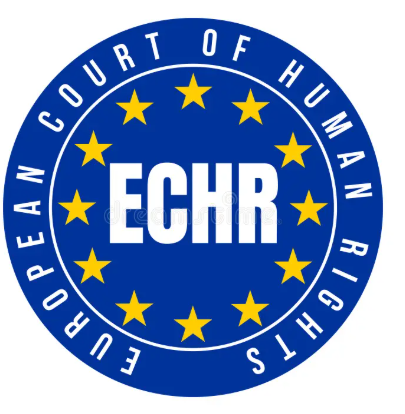Introduction
The debate over whether the United Kingdom should withdraw from the European Convention on Human Rights (ECHR) has intensified in recent years, particularly in relation to immigration and asylum policy.
Supporters of leaving the ECHR argue that the Convention restricts the government’s ability to deport individuals and control borders effectively. Both Reform UK and the Conservatives appear to be supporting this route, and even the Labour Party are saying that ECHR influence over UK laws should be rethought,
But critics contend that such a move would do little to reduce immigration while damaging the UK’s international reputation and undermining fundamental rights.
Anyway, this blog examines whether leaving the ECHR would genuinely reduce immigration and explores the wider constitutional, political, and diplomatic implications if the UK were the leave the ECHR.
How does the ECHR impact UK Immigration Law?
The ECHR, drafted in the aftermath of the Second World War and enforced by the European Court of Human Rights (ECtHR) in Strasbourg, protects a range of civil and political rights.
In the UK, these rights are given effect through the Human Rights Act 1998 (HRA), which allows domestic courts to interpret legislation in line with the Convention.
Specifically, in the field of immigration, two provisions are particularly significant:
- Article 3: Prohibition of torture and inhuman or degrading treatment. This prevents the deportation of individuals to countries where they face a real risk of such treatment.
- Article 8: Right to respect for private and family life. This can be invoked to challenge deportation where removal would disproportionately interfere with family ties.
These rights have occasionally been used to delay or prevent deportations, especially in very high-profile cases involving asylum seekers or foreign offenders.
However, academic research and case data indicate that successful human rights appeals represent only a small proportion of total immigration cases.
Therefore, would leaving the ECHR Reduce Immigration into the UK?
Yes, in theory, withdrawing from the ECHR could make it easier for the government to enforce removals and limit appeals based on human rights grounds.
Without the Convention’s constraints, ministers might enjoy greater discretion to deport individuals who currently rely on Article 3 or Article 8 protections.
But, in practice, the evidence suggests that leaving the ECHR would not significantly reduce immigration levels. There are several reasons for this:
- Limited Impact of ECHR on Overall Immigration Numbers – It is important to remember that the vast majority of migrants come to the UK legally. Either through work, study, or family routes, or as asylum seekers under the UN Refugee Convention, which would remain binding even outside the ECHR. The number of deportations prevented solely due to human rights rulings is relatively small.
- Overlapping International Obligations – Even without the ECHR, the UK would still be bound by other treaties and international norms, such as the Refugee Convention and the Convention Against Torture. These contain similar protections to Article 3 and would continue to restrict removals to unsafe countries.
- Operational Barriers to Removal – Many obstacles to deportation are practical, not legal. Such as the lack of return agreements with certain countries, difficulties proving identity, or delays in processing claims. These challenges would remain unchanged by leaving the ECHR.
- Risk of Diplomatic and Legal Repercussions – Withdrawing from the ECHR could damage the UK’s relationships with European partners, undermining cooperation on migration, extradition, and policing. This could paradoxically make it harder to return migrants to other countries.
In short, while exiting the ECHR might remove certain legal hurdles, it would not address the deeper structural and operational issues that shape immigration.
What are the wider implications of leaving the ECHR
Leaving the ECHR would have far-reaching consequences beyond immigration policy.
- Constitutional and Legal Effects – Withdrawal would likely require repealing or substantially amending the Human Rights Act 1998. This would alter the relationship between Parliament, the courts, and individual rights, creating significant legal uncertainty. It could also lead to divergence between the UK and devolved administrations, as Scotland, Wales, and Northern Ireland all have strong commitments to ECHR principles within their devolved frameworks.
- Impact on the Good Friday Agreement – The Belfast (Good Friday) Agreement explicitly guarantees that the ECHR will continue to apply in Northern Ireland. Leaving the Convention could therefore destabilise this cornerstone of the peace process, potentially breaching international commitments and straining relations with Ireland and the EU.
- International Reputation and Cooperation – The UK has long promoted itself as a defender of human rights and the rule of law. Exiting the ECHR would place it alongside only a few European states outside the system (such as Russia and Belarus), undermining its credibility and moral authority. It could also threaten law enforcement cooperation with the EU, particularly under agreements that require adherence to ECHR standards.
- Domestic Political and Social Consequences – Withdrawal would be politically divisive, sparking opposition from civil society, the legal community, and devolved governments. It could weaken protections for vulnerable groups and reduce public trust in government accountability mechanisms.
Conclusion.
Leaving the ECHR would mark a profound constitutional and moral shift for the United Kingdom.
While it could increase the government’s flexibility in deportation and asylum decisions, there is little evidence that it would significantly reduce overall immigration. Most migration is driven by global economic, humanitarian, and geopolitical factors that are unaffected by the ECHR.
Moreover, the costs (viz legal, diplomatic, and reputational) would likely outweigh any short-term policy gains. The ECHR remains a key pillar of the UK’s post-war legal order, offering not only rights protection but also credibility and cooperation in international affairs.
Modification within the existing framework, rather than withdrawal, may therefore offer a more balanced and pragmatic path forward?


Recent Comments